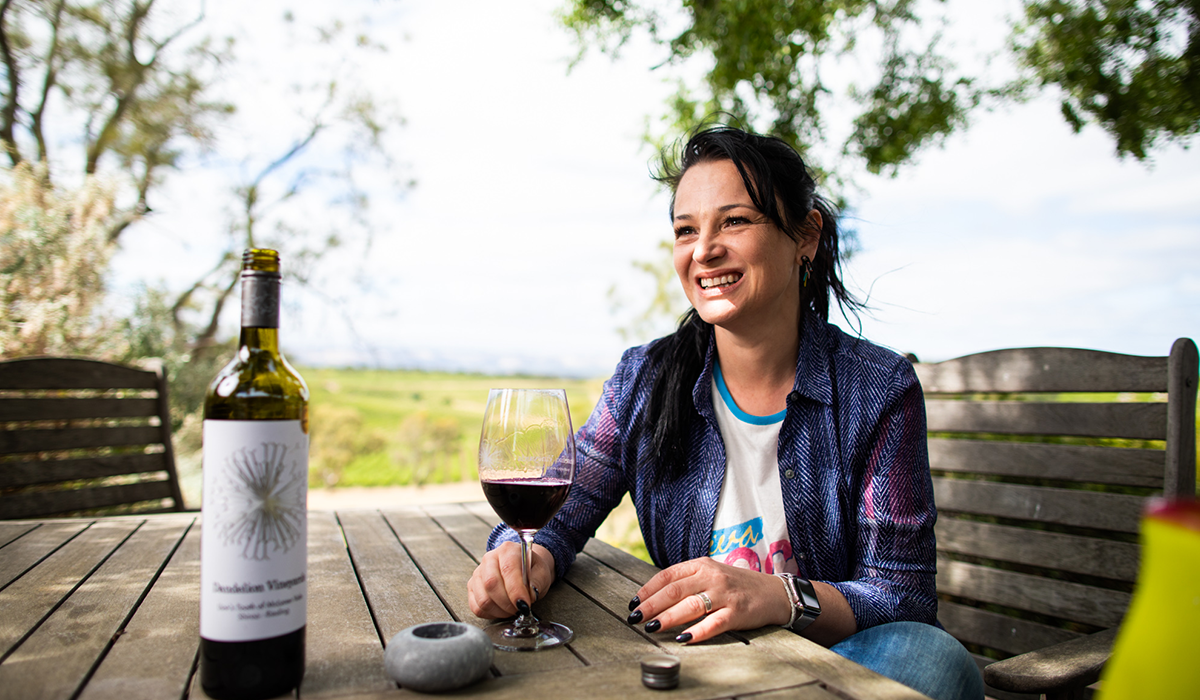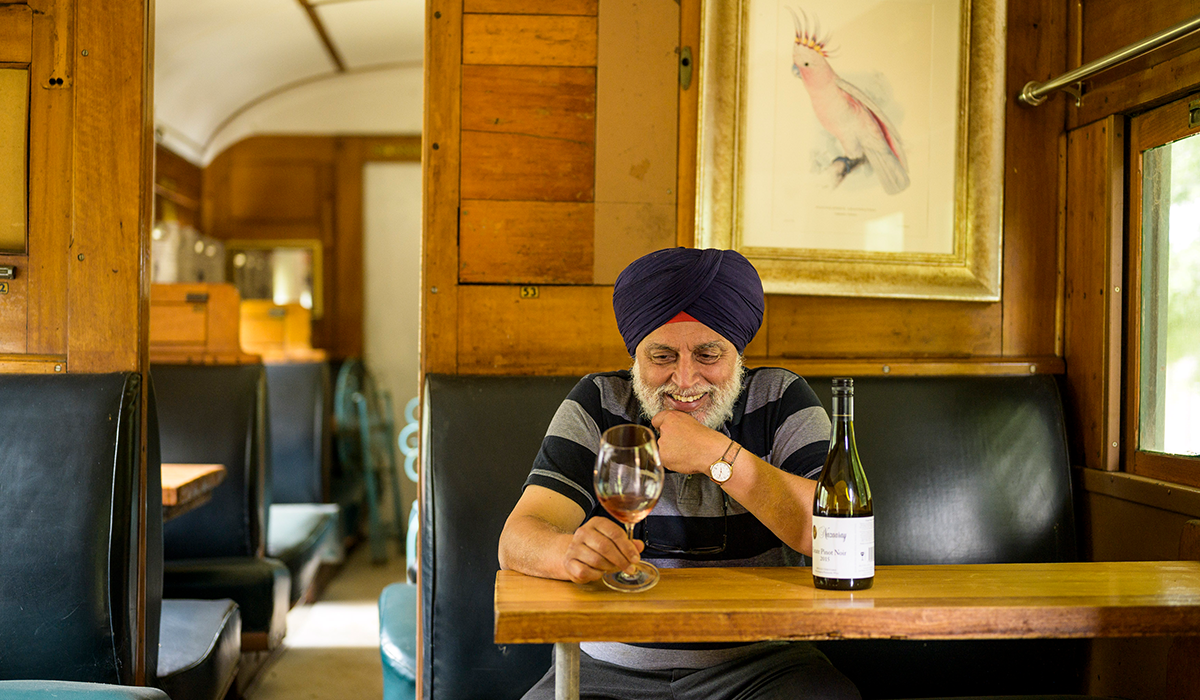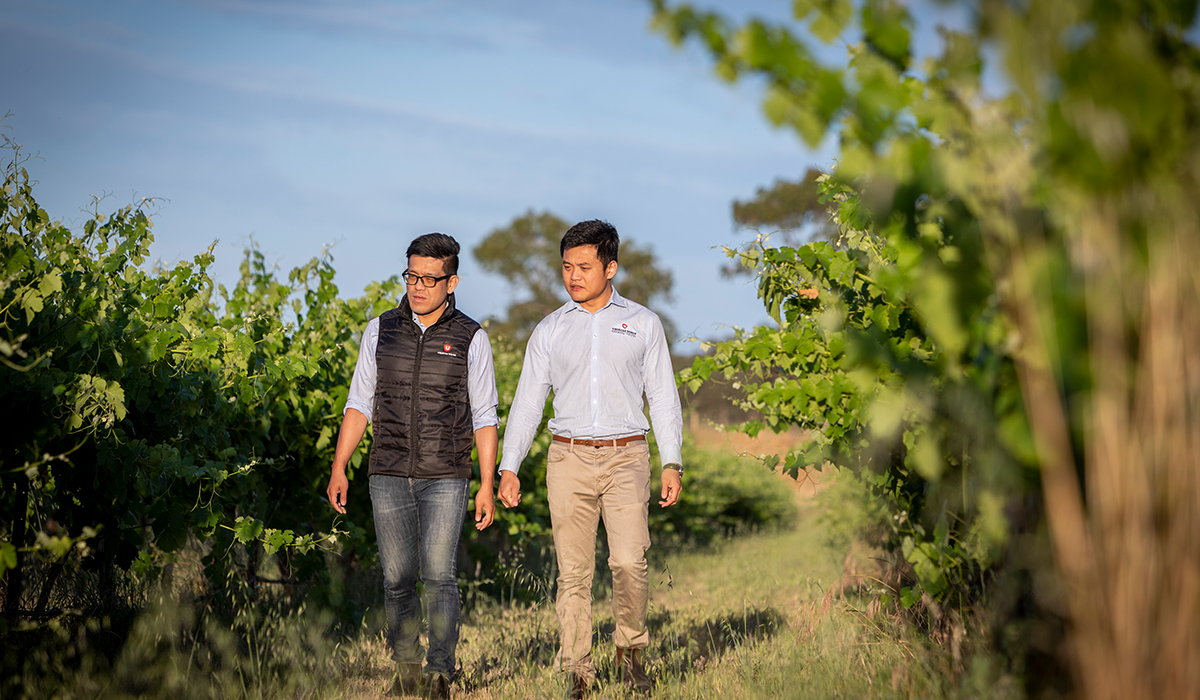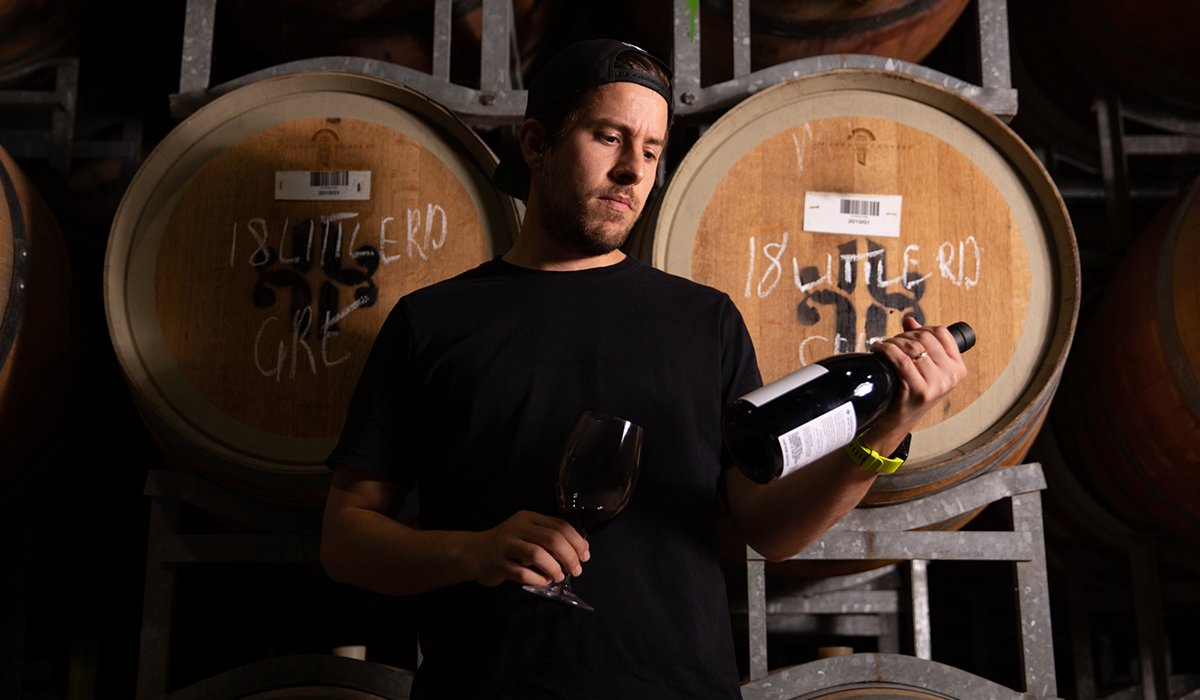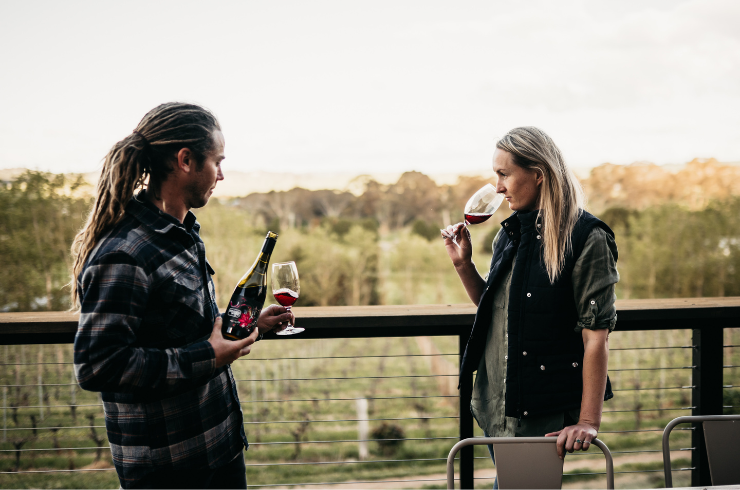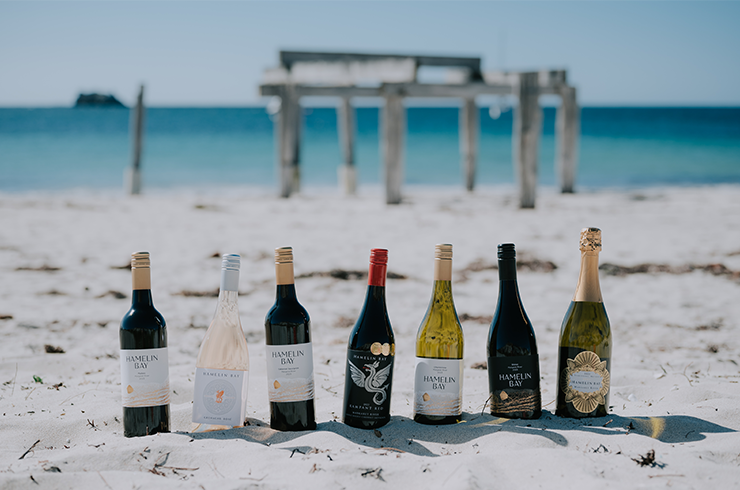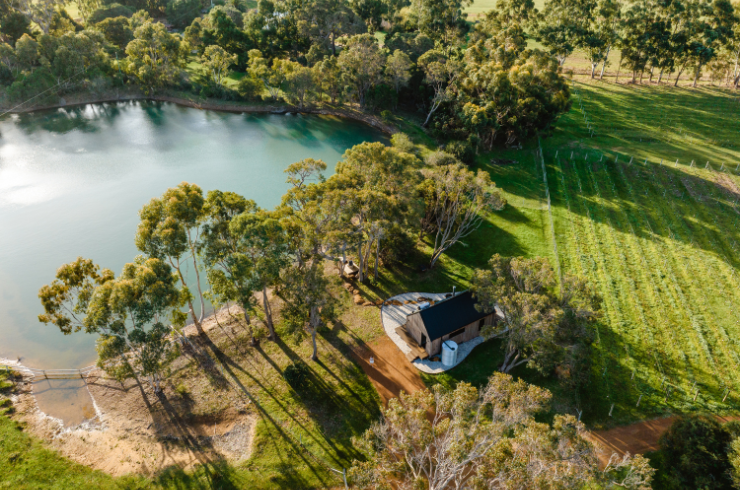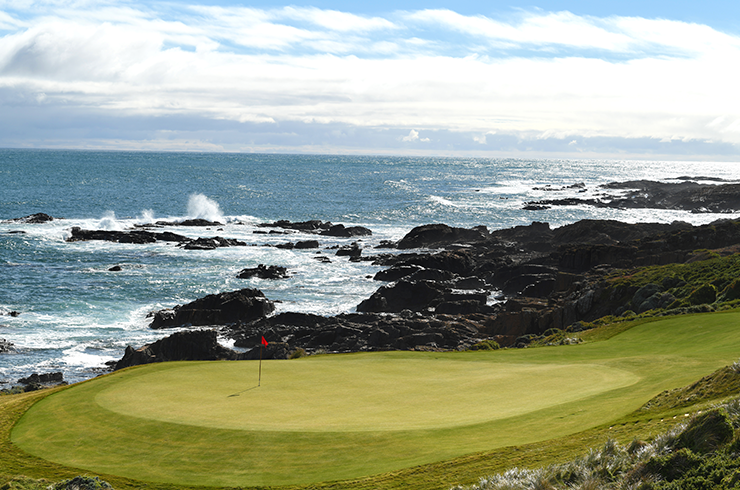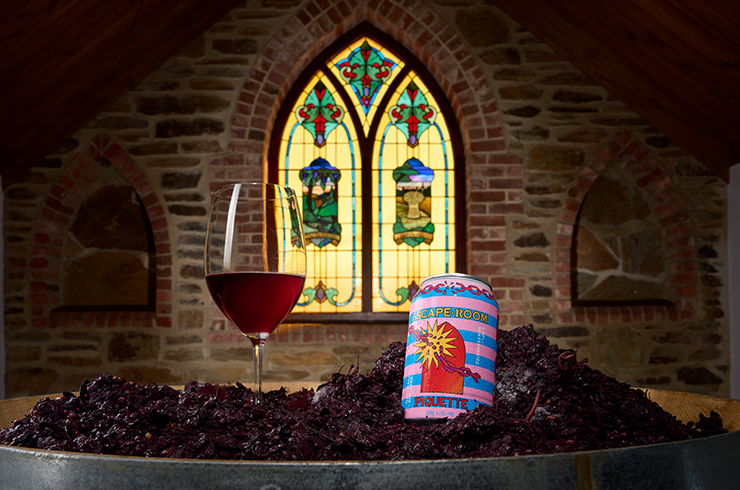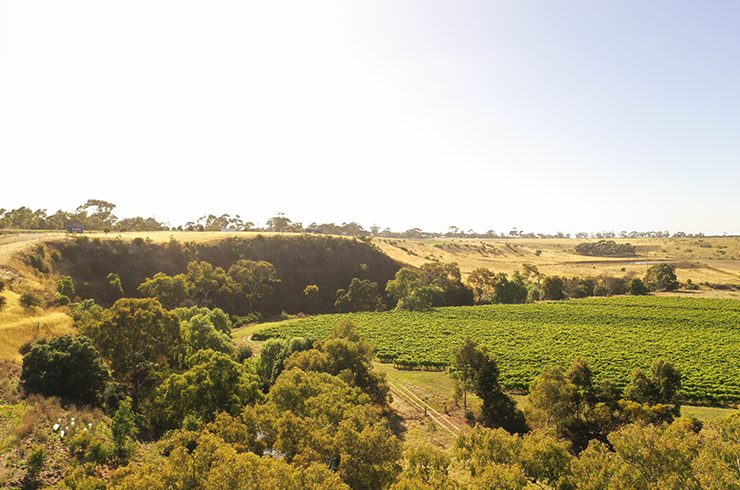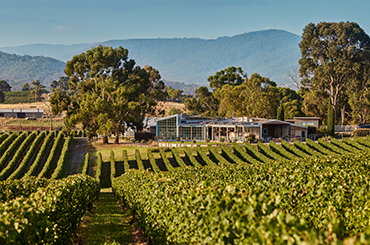As Australia’s status as a producer of premium wines has soared across the world, so too has its reputation as a training ground for those who seek to make it. This is the story of four winemakers whose dreams were forged far, far away – in some cases, unexpectedly – but made into reality here, highlighting the strength and diversity of the Australian wine industry.
Elena Brooks
Dandelion vineyards, McLaren ValeElena Brooks grew up around wine. Born in Bulgaria, her parents worked for a state-owned winery following careers in the military. Elena’s mother insisted she learn English, a persuasion that would have a life-changing outcome for her daughter.
With Bulgaria seen as a great source of cheap wine in the early 1990s after the collapse of communism, UK supermarkets like Sainsbury’s and Tesco got in on the act, employing Australian ‘fly-in, fly-out’ winemakers to make it for them. Elena was tasked with interpreting for them, soaking up as much wine knowledge as possible. When she finished high school, one winemaker asked what she wanted to do next, and the decision was natural: “I have to come to Australia.”
For Elena, “Wine was attractive because it was very easy for me, I understood it, I had grown up with it from the age of two.” After finishing her winemaking degree at Adelaide University, she faced another choice: to stay in Australia or return to Bulgaria.
“In our profession, a degree without experience is not really worth a lot,” Elena says. She cut her teeth at Patritti Wines and Hardys Tintara, followed by five influential years at Geoff Merrill Wines in McLaren Vale.
And it’s been full speed ever since. Citizenship came in 2006, then marriage to wine marketer Zar Brooks in 2008 – they established Dandelion Vineyards in 2009 – and during the 2010 vintage, Elena gave birth to her first child. What a whirlwind!
Elena classes herself as “more Australian than Bulgarian now”, and she sees Australia as the only place that would have given “a young, female immigrant like me” a chance.
Australians are some the most educated customers in the world when it comes to wine, Elena says. “They hold us responsible when we make bad wines and celebrate us when we make good wines.”
Paramdeep Ghumman
Nazaaray Estate, Mornington PeninsulaIndia is not a well-known producer or consumer of wine, yet that didn’t stop Paramdeep Ghumman from taking an interest in it long before he’d tasted it.
As an electronics engineer, Paramdeep witnessed the Indian IT industry struggling in the 1970s and decided it was time for a change of epic proportions. Settling in Melbourne in 1981, his wife Nirmal worked as a GP while Paramdeep worked for IBM before starting his own IT company.
Looking for respite from suburban life, the couple bought land in Flinders, on the Mornington Peninsula, in 1991, naming the property Nazaaray, Punjabi vernacular for ‘beautiful view’. Seeing the increasing popularity of vineyards on the peninsula, Paramdeep thought, “Maybe I can also do this.”
He planted .2ha of vines, which Nirmal jokingly nicknamed ‘Param’s folly’. It proved to be an excellent decision, even for someone whose first experience of wine – a Champagne, no less – was on the flight from India to Australia.
Courses in viticulture and winemaking followed, plus the planting of more vines – there are now 2.5ha. There were many trials along the way, but “If I didn’t have a scientific temperament, I’d have given up the ghost at the time,” Paramdeep says.
The biggest trial came in March 2023 when Nirmal, who was instrumental in starting and running Nazaaray, passed away due to complications associated with MS. Given her commitment to protecting the environment, Paramdeep has honoured her by planting a eucalypt grove at the property to create a koala corridor.
Paramdeep’s wines range from spicy pinot to savoury sauvignon blanc, and bright, creamy chardonnay. Tasting them alongside the beautiful view at Mornington Peninsula’s southern-most winery is a bonus, and a great way to celebrate the life and legacy of Nirmal.
Kevin and Philip Liu
Ubertas, Barossa Valley“Sometimes the career chooses you,” is how Kevin Liu describes his and his brother Philip’s ascent into the Australian wine industry. Born in Taiwan, Kevin and Philip, trained engineers, preferred to drink beer and spirits when they came to Australia in 2006 to improve their English. Wine was not really on their radar – and neither was remaining in the country.
The pair quickly “fell in love with Australia” and decided to stay, seeing an opportunity: to export Australian wines back to Taiwan, as they “suit the Asian palate – fruity and full bodied,” says Philip.
However, they “found it difficult to express the culture or background ... as it’s not our story or history,” Kevin says, and the 2007 GFC caused many of their exported brands to fail. This prompted them to take an even bigger step: making the wines themselves.
Kevin and Philip returned to study – marketing and oenology respectively – and settled in the Barossa, buying an established vineyard in north Nuriootpa and naming it Ubertas, Latin for ‘fruitfulness’ or ‘good harvest’.
Many challenges tested their resolve, such as spring frosts wiping out 90 per cent of their crop in 2019, yet the support of those around them helped them persevere. “Here in the Barossa, people are quite helpful,” Kevin says.
The brothers’ passion for wine has been beneficial, too.
“If you don’t have passion,” Kevin says, “you probably might have to consider other jobs” as there are “always different challenges to overcome”. Despite some of the trials, if they could go back in time, they’d still choose the same path all over again. It’s led them to making some characterful wines – such as a vibrant rosé and complex single-vineyard shiraz – although Philip is keen to explore ‘funkier’ styles that offer something unexpected.
Mauricio Ruiz Cantú
Somos, McLaren ValeWhile Mauricio Ruiz Cantú’s father had a love of wine, “A young kid in Mexico who’s really into wine is not very common.”
That all changed when Mauricio caught the wine bug himself. “I said to my old man, ‘What if I went into wine?’ and his reaction was, ‘Where are you gonna work?’”
A vintage at Casa Madero, Mexico’s oldest winery, in the Valle de Parras in the country’s north followed, and while he planned to study at UC Davis in California, Australian winemakers working in Mexico told him, “If your goal is to come back to Mexico and make wine, you’ll get better practical experience in Australia.”
So Mauricio travelled to South Australia – which shares many climatic similarities with the main wine-growing regions of Mexico, helping him to feel more at home – and completed a degree in viticulture and oenology at Adelaide University.
“My plan was to come, study, learn, work for a vintage or two, then make my way back,” he says. Yet life turned out differently, with employment at Pernod Ricard allowing Mauricio to hone his skills here.
A subsequent decision to make wine with Ben Caldwell, who was exporting Australian wine to Mexico, led to the creation in 2012 of export-only label Juguette (‘toy’, in Spanish), which Mauricio took over in 2023.
The thought that “maybe I need to be in Australia for a little bit longer” ultimately led to permanent residency. But the classical styles he was making under the Juguette label “weren’t scratching that itch as a winemaker,” Mauricio says. “Somos comes from wanting to purely explore alternative, climate-appropriate varieties.”
Through Somos (Spanish for ‘we are’), Mauricio works with growers in McLaren Vale, Adelaide Hills and the Riverland who are willing to grow something a little different, and he recognises “a thirst in the market for experiencing new styles”.
Mauricio’s wines are a fantastic mix of delicious aromas and flavours framed by value for money, with standouts such as a florally vivacious verdelho/viognier, a vividly fruited barbera rosé and a rich, spicy aglianico. ¡Salud!
